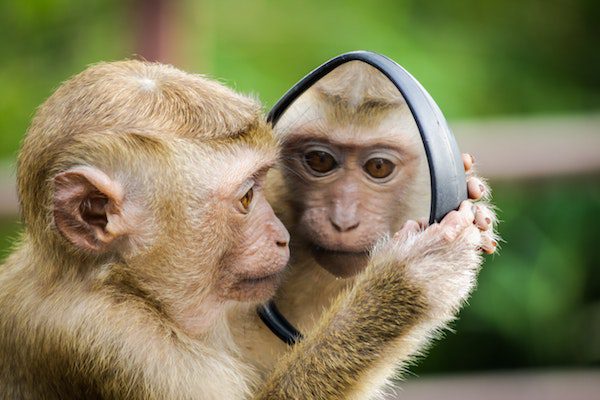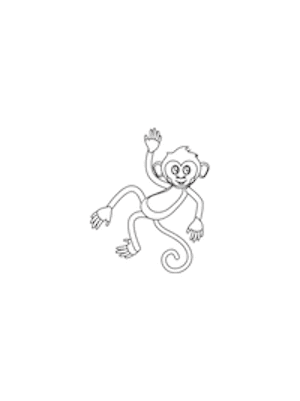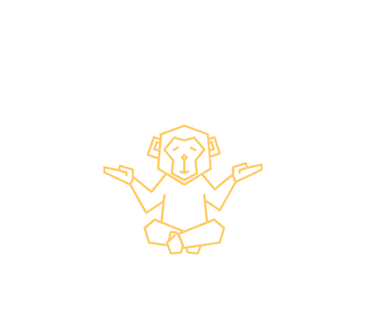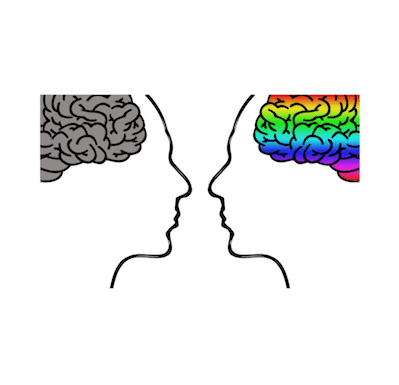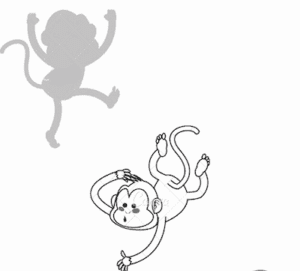Today’s world is overstimulated and hyper-connected. A constant stream of distractions is likely to lead you to chronic stress. Eventually you may feel overwhelmed, which can lead to anxiety and keeps you thinking about what you’re missing. The “monkey mind” becomes dominant due to this level of arousal and heightened stress sensitivity. The monkey mind refers to primal parts of the brain that control our emotional reactions, and not rational, logical, whole-brain thinking. To solve problems more effectively, we need to learn to distance ourselves from fear and uncertainty when our emotions get in the way.
It’s the monkey mind
Monkey mind or mind monkey is a Buddhist term for “unsettled, capricious, fanciful, indecisive, confused”. Everyone is familiar with this phenomenon, a mind that goes in more than one direction at a time, uncontrollably piling on ideas. The monkey wants this and that, It wants to keep moving. This monkey mind enjoys pointless texting, gaming, and overreacting to social media posts. The monkey mind enjoys being mindless.
In China, Tibet, Japan, and Korea, Mahayana Buddhism is one of the two major traditions of Buddhism. For more than 1,500 years, the teachings talk about the monkey mind. According to some of its philosophies, the mind is like a monkey in a house with six windows. It’s seeing and hearing, touching and tasting, smelling and consciousness. Picture a brain with two characters inside. There is one that’s positive, organized and considerate, and the other that’s emotional and selfish. This more primitive and judgmental aspect is known as the monkey mind.
Monkey mind has the ability to persuade you easily. A conscious mind might want to practice good habits, but a monkey mind wants to procrastinate and cave to temptations. With practice we might discover that you can change the annoyance of the monkey mind into an extremely useful and helpful ally, much more powerful and expansive than we had previously thought. In fact, you may be on the path to enhancing your “Buddha-mind”.
The monkey business
In spite of the monkey mind’s hyperactivity, it can provide a surge of adrenaline to help you act quickly in dangerous situations. If we replay events in our minds even if they aren’t happening, the monkey mind reacts as if they did, triggering the amygdala and pumping you full of stress hormones. It can’t tell real life from imagination.
As anxiety and stress worsen over time, your monkey mind reacts to the problem and you survive, so it feels it is doing a good job so it continues to do it. That’s is how bad habits and bad coping mechanisms are created. The monkey thinks it’s being helpful by giving you a quick fix. If it stays in control, it can lead to addiction, drug use, anger, violence, aggression, obsessive behavior. When you are in this mind state you are the most prone to instant gratification which can lead to long term dissatisfaction.
We are programmed by our monkey minds to always look at the worst case scenario and to carry on thinking about the past and future. It can make us think about the same things over and over, making us reflect on things we don’t want to think about. We are programmed by our monkey minds to always look at the worst case scenario and to carry on thinking about the past and future. It can make us think about the same things over and over, making us reflect on things we don’t want to think about. Our thoughts release chemicals in the brain. So as said with negative thoughts, when we visualize something positive happening, it releases neuro chemicals to reward and make us feel good because it still believes it’s happening. This reward is serotonin. Serotonin helps us relax, think clearly, cope with stress, and avoid depression.
How to make your monkey mind behave
Improving sleep
Cut down the screens. Your brain can be tricked into thinking you need to stay awake by blue light tech, and exciting or disturbing content makes it hard to relax. Avoid screens an hour before bedtime. Take a listen to an audio track that promotes a better sleep pattern when you’re in bed and ready to go to sleep. A comfortable room temperature, blocking out light and sound, and going to bed at a regular time can help you get a better night’s rest.
- Positive thinking is the key – Think positively about your day and have positive thoughts about tomorrow. Last thought you have before going to sleep will stay in your head all night, make sure it’s the one you want.
- Eat and exercise right – Physical activity regularly is linked to better sleep. Even 10 minutes of aerobic exercise every day can help. Eat about three hours before bedtime so your body can digest your food. This also applies to drinks like caffeine or alcohol.
Take a moment to be mindful
To be fully present and aware of where we are and what we’re doing without being overreactive or overwhelmed is our basic human ability. Avoid negative thinking that can create anxiety, anger, depression, and all kinds of psychological suffering. The way you think determines the way you feel. Feelings ultimately dictate what you can or can’t do, what is and isn’t possible in your life.
Be intentional about focusing on positive thoughts. Practice a mental rehearsal. This means that you practice the action of performing a task in your mind, rather than carrying out the task physically. Therefore, when performing mental rehearsal, one performs the act without actually having to perform it. For you to experience the benefits, you must be committed to practicing these tips consistently.
The monkey mind hates change. Change is perceived as a danger by this part of your mind, so it may already be coming up with excuses or reasons why you cannot do this. It’s your go-to when it comes to procrastination and self-sabotage.
Our mind cannot tell the difference between real life and imagination – we feel what we think
Conclusion
To get a positive change in your life, you’ve got to learn to recognize when the monkey is in charge, and learn to manage it rather than fight it or let it make all the decisions. Taking responsibility for how you feel is important. We become powerless when we blame a person or a situation for how we feel. We empower ourselves when we take responsibility for our emotions. Due to the monkey mind’s impatience and obsessive nature, you can quickly get depressed, anxious, stressed, or angry. Regain control and become aware when you get tense, agitated or anything other than peaceful.
Call it out and use the ‘PABLO’ technique. Acronyms designed by mind guru Graham McDowell to deal with these feelings.
- Pause – And think about what you are thinking about
- Accept – Tension and stress will ease if you accept reality without resistance. It’s okay to want something different. But what you’re feeling isn’t the event, it’s your resistance. Sometimes what you feel isn’t due to the event, it’s how you accept that event.
- Breathe – Oxygenate your brain to reduce tension and increase calmness
- Look – Look again at what was causing the stress. Was there anything you could do about it, if so, do it, if not, accept it for what it is
- Own your feelings – If you take responsibility for your monkey mind, you become a more relaxed, confident, and positive individual.
Solution to your problem no need to worry. No solution to your problem no point of worrying.
Some thoughts
When you recognize the monkey mind to be the monkey mind this type of recognition happens in mindfulness or what is also called the ‘monk mind“
Witness it and remain a witness. Becoming a witness lets you step back from its monkey business. Notice it but don’t always believe the monkey mind.


